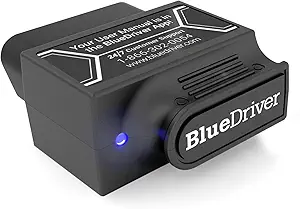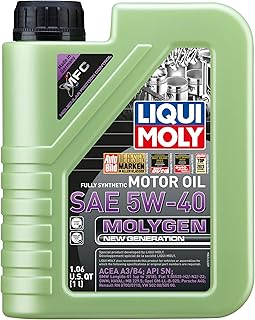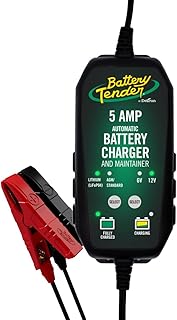Acura vs. BMW Reliability: Which Brand Is More Dependable in 2025?
It’s one of the great debates in the luxury car world: the meticulous, proven engineering of Japan versus the high-performance, cutting-edge technology of Germany. In one corner, we have Acura, Honda’s luxury division, renowned for its sensible performance and legendary dependability. In the other, BMW, the “Ultimate Driving Machine,” celebrated for its exhilarating driving dynamics and premium features. For decades, the conventional wisdom was simple: buy the Acura if you want it to run forever, buy the BMW if you want to have fun between repair shop visits. But is that still true in 2025? With turbocharged engines now standard in Acuras and BMW making significant strides in quality, the lines have blurred. Let’s pop the hood and dive into the data.
The 2025 Verdict in a Nutshell 🏁
For the vast majority of buyers who prioritize low running costs, minimal unscheduled repairs, and long-term peace of mind, Acura remains the more reliable brand in 2025. Its foundation in Honda’s conservative engineering philosophy results in vehicles that are generally less complex and cheaper to maintain.
However, modern BMWs, particularly those with the B48 (4-cylinder) and B58 (6-cylinder) engines, are far more dependable than their predecessors. A well-maintained 2025 BMW can be a reliable vehicle that offers a level of performance and refinement Acura can’t quite match. The choice boils down to your tolerance for higher potential maintenance costs in exchange for a more dynamic driving experience.
How We Define and Measure Reliability
“Reliability” can be a fuzzy term. For this comparison, we’re not just going by gut feelings or old reputations. We’re synthesizing data from three key, independent sources that paint a comprehensive picture:
- J.D. Power: Their annual U.S. Vehicle Dependability Study measures problems per 100 vehicles (PP100) experienced during the past 12 months by original owners of three-year-old vehicles. A lower score is better.
- Consumer Reports: This non-profit organization collects extensive survey data from its members about the problems they’ve had with their cars over the past year. They use this to generate a predicted reliability score on a scale of 1 to 100.
- RepairPal: This site analyzes data from certified repair shops to estimate the average annual cost of repairs and maintenance. This gives us a real-world look at the cost of keeping these cars on the road.
Acura’s Reliability Philosophy: The Art of Evolution 🇯🇵
Acura’s approach to reliability is a direct extension of its parent company, Honda. The philosophy is one of evolution over revolution. They typically refine and perfect existing technologies rather than rushing to implement unproven ones. For years, this meant relying on naturally aspirated V6 engines (like the legendary J-series) and smooth, conventional automatic transmissions. These components are known for being robust and capable of running for well over 200,000 miles with basic maintenance.
In 2025, most of the Acura lineup uses modern, small-displacement turbocharged engines. While this adds complexity compared to their old V6s, they’ve been implemented with typical Honda/Acura caution. Mechanically, these vehicles remain very strong. Where Acura has seen some hiccups in recent years is with its infotainment systems and occasionally fussy 9-speed and 10-speed transmissions, though many of the early software bugs have been ironed out.
BMW’s Reliability Philosophy: The Pursuit of Performance 🇩🇪
BMW’s core mission is to build the “Ultimate Driving Machine.” This means a relentless pursuit of performance, which often involves using the latest, most complex technology. This philosophy is the root of both BMW’s greatness and its reputation for being finicky. Features like adaptive suspensions, intricate twin-turbo setups, and highly advanced electronic systems deliver an incredible driving experience but also create more potential points of failure.
The good news for 2025 buyers is that BMW has made huge improvements. The modular B-series engines (B48 & B58) are widely regarded as some of the most robust powerplants the company has ever produced. The ZF 8-speed automatic transmission they use is a masterpiece of both performance and reliability. The problem isn’t that a new BMW will leave you stranded; it’s that when something *does* go wrong out of warranty—be it an electronic module or a coolant line with a plastic fitting—the repairs are almost always significantly more expensive than on an Acura.
2025 Reliability Scoreboard: A Head-to-Head Comparison
Let’s look at the numbers. We’ve compiled data from J.D. Power, Consumer Reports, and RepairPal to create a snapshot of how the brands stack up.
| Metric (as of early 2025) | Acura | BMW | Winner |
|---|---|---|---|
| J.D. Power Dependability (PP100) | Typically ranks in the top 5 (Lower is better) | Typically ranks around the industry average | Acura |
| Consumer Reports Predicted Reliability | Above Average to Excellent (e.g., Integra, MDX) | Average to Above Average (e.g., 3 Series, X5) | Acura |
| Average Annual Repair Cost (RepairPal) | ~$501 (Ranked 2nd out of 32 brands) | ~$968 (Ranked 30th out of 32 brands) | Acura |
| Engine & Drivetrain Complexity | Lower (Proven turbo-fours & V6s) | Higher (Advanced turbocharging, mild-hybrids) | Acura |
| Electronics & Infotainment | Simpler, but can have glitches (True Touchpad) | Very complex (iDrive), more potential issues but powerful | Tie |
| Driving Dynamics & Performance | Good, sporty for FWD-based platforms | Excellent, benchmark for the industry | BMW |
The True Cost of Ownership: It’s More Than Just Repairs
A reliable car saves you money in two ways: fewer repair bills and lower routine maintenance costs. This is where the gap between Acura and BMW widens significantly.
Maintenance: The Slow and Steady Drain
An oil change on an Acura RDX might cost $100-$150 at a dealer. A similar service on a BMW X3, which requires a specific type of European synthetic oil and a larger quantity, will likely be $200-$250. This premium applies across the board: brake pads and rotors, spark plugs, coolant flushes—expect to pay a 30-50% premium for routine BMW maintenance over the life of the car.
Repairs: The Potential Budget-Buster
This is the real fear for many prospective BMW owners. While the new engines are solid, peripherals can fail. A leaking plastic coolant pipe or a failed water pump on a BMW can easily become a $1,000+ repair bill due to the labor required to access it. A major component failure, like a transfer case on an xDrive model, can be catastrophic for your wallet. It’s in these unfortunate situations you’ll be glad you know how to get a rental car after an accident or major repair, because your car could be in the shop for a while.
Insurance Costs
Higher performance and repair costs also translate to higher insurance premiums. A BMW M340i will almost certainly cost more to insure than an Acura TLX Type S. Insurers know that the parts are more expensive and the cars are often driven more aggressively. If you get a quote and are shocked by the price, it’s worth understanding the many factors involved and asking the question, “why is my car insurance so high?” The answer often lies in the vehicle’s risk profile.
Essential Gear for the Discerning Owner
Whether you choose Acura or BMW, taking a proactive role in your car’s health is key. These tools can help you stay ahead of issues and keep your luxury vehicle in pristine condition.

Professional Bluetooth OBD2 Scanner
A must-have for any modern car owner, especially a BMW. This tool lets you read check engine lights and diagnose potential issues yourself before heading to the mechanic.
Check Price on Amazon
LIQUI MOLY Premium Motor Oil
For the BMW owner. Don’t skimp on oil. Using a high-quality, manufacturer-approved oil like LIQUI MOLY is the single best thing you can do for your engine’s longevity.
Check Price on Amazon
Smart Battery Tender/Charger
BMW’s complex electronics can drain the battery if the car sits for a while. A smart tender keeps the battery optimally charged, preventing electronic gremlins.
Check Price on AmazonFrequently Asked Questions (FAQ)
Is an Acura just a more expensive Honda?
Not exactly. While they share platforms and core engineering with Honda, Acuras offer more powerful engines, more luxurious materials, advanced features (like Super Handling All-Wheel Drive™), and a different level of fit and finish. Think of it as Honda providing the reliable skeleton, and Acura adding the muscle and premium skin.
Are new BMWs really more reliable than old ones?
Yes, significantly. The era of the early 2000s and 2010s gave BMW a bad reputation for things like cooling system failures and oil leaks. The latest generation of engines (B48, B58) and electronics are a major leap forward in terms of durability. The core components are very strong; it’s the complexity and cost of repairing smaller items that remains the brand’s Achilles’ heel.
How long can I expect a 2025 Acura vs. a 2025 BMW to last?
With proper, consistent maintenance, an Acura can realistically reach 200,000-250,000 miles without major engine or transmission issues. A modern BMW can also reach high mileage, but you should budget significantly more for maintenance and be prepared for several large repair bills (in the $1,500-$3,000 range) along the way after the 100,000-mile mark.
Final Verdict: Choose the Car That Fits Your Life
In the end, the choice between Acura and BMW in 2025 is less about “good vs. bad” and more about “what do you value most?”
Choose the Acura if:
- You want a premium, comfortable, and sporty-enough daily driver.
- Your top priority is minimizing unexpected repair bills and long-term costs.
- You value the peace of mind that comes with a proven track record of dependability.
- You plan to keep the car for many years and rack up high mileage.
Choose the BMW if:
- The driving experience—handling, acceleration, and road feel—is your absolute top priority.
- You appreciate cutting-edge technology and a higher level of interior luxury.
- You have a healthy budget for proactive maintenance and are prepared for potentially expensive out-of-warranty repairs.
- You are more likely to lease the vehicle or trade it in before it reaches 100,000 miles.
From my professional experience, I’ve seen far more Acuras with 150,000+ miles needing only basic service than BMWs of the same vintage. But I’ve also seen the pure joy on the face of a BMW owner carving up a canyon road. Both are excellent brands, but they cater to different philosophies of ownership. Choose wisely, and you’ll be happy with either one.
Disclaimer: This analysis is based on aggregated industry data, professional experience, and information available as of early 2025. Individual vehicle reliability can vary based on maintenance, driving habits, and specific manufacturing batches. This post may contain affiliate links, which means we may earn a commission if you purchase products through our links at no extra cost to you.
